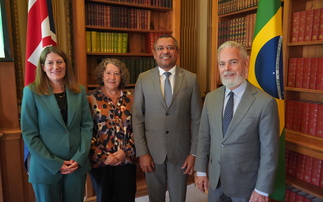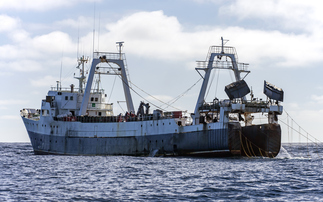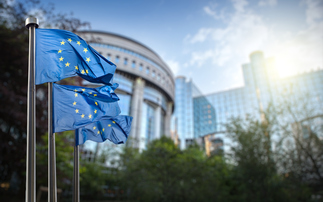Richard Black argues the UN climate talks made little progress last week, but hope remains an ambitious deal can still be done
About this time last year, I went to speak at a very different kind of United Nations climate conference.
Delegations were there from countries that traditionally disagree with each other - coal-rich Australia and flood-prone Bangladesh, the rich and powerful United States and the small and poor Maldives.
They slated each other, they negotiated in open session, they sidled up to each other in breaks and made little deals. And eventually, within an afternoon, they agreed a UN climate deal.
It wasn't a dream; but it wasn't quite reality either. These were school students taking part in an exercise aimed at spreading familiarity and understanding of the UN climate process, role-playing their way to agreement.
Judging by the outcome, they grasped the importance of the prize more clearly than some of the real negotiators engaged in talks in Bonn last week.
This was the final preparatory session scheduled before the Paris Summit in December. Four years ago, all governments agreed that they would finalise a new global deal at that summit - and yet here we are, with just 10 negotiating days at Paris to go before the clock runs out, and a draft agreement that during last week swelled from 20 pages to 63.
All week we have heard warnings about how little time remains, and pleas for urgency. Each day, facilitators of the various informal discussion groups have come back to tell us that bits of text have been streamlined, or re-ordered, or redrafted. They've described it as 'progress'.
At the closing session of the week, negotiators varied in how much progress they distinguished. The EU was of the view that the draft document is in a state now to allow proper negotiation. But for Russia, this week has been such a 'real backslide' that an extra negotiating session is needed between now and the start of the Paris Summit on 30 November.
Judging progress purely by the size of the draft text - the amount of options that remain to be resolved - Russia was right: progress has been negative.
Blocs and obstacles
On the face of it, this is hard to comprehend. Every government says it wants to finalise a deal in Paris. They all agreed to the programme four years ago, at the summit in South Africa, and none has publically demurred or withdrawn.
Every single one is officially signed up to the goal of keeping global warming below two degrees Celsius. And the majority - those that are members of the Intergovernmental Panel on Climate Change - have also accepted the need to bring fossil fuels essentially to zero on a timescale of decades.
So what are we wasting time talking about?
As James Murray observed on BusinessGreen last week, the UN process essentially marries two separate issues. One is about reducing emissions and transitioning to a low-carbon economy. It's about signals to business, cost-competitiveness of renewables and decarbonisation rates.
The other is about justice and fairness - rich nations helping poorer ones to adapt to inevitable climate impacts, and compensating them for damage caused by the historical emissions through which they got rich.
In one sense these are separate issues, even though (as James pointed out) progress in one has corollaries in the other - the quicker societies decarbonise, for example, the less severe eventual climate damages are likely to be.
But within the UN process, they're wrapped up in a single package agreement. The mantra, as in many other negotiations, is 'nothing is agreed until everything is agreed'.
The traditional negotiating blocs make some sense when we're talking about justice, fairness, finance, adaptation, loss and damage. The powerful G77+China bloc basically represents the traditional developing world, even though some members are now much richer per capita than some of the so-called 'developed' nations. But this is largely an issue of the poorest asking for justice from the rich, and the solidity of the bloc gives them power.
On the issue of reducing emissions, though, the structure makes no sense.
Within the 134-country-strong G77+China bloc there are small island states desperate for a swift end to fossil fuel use globally, and major fossil fuel producers. There are African countries where most of the population can most easily gain access to modern energy via off-grid renewables, and Asian ones that are already invested in a national grid with traditional block power stations, with burgeoning car ownership.
The reality is that on this issue, interests run across negotiating blocs rather than residing within them. Germany's ambitions are more closely aligned with those of Bangladesh than Poland. The power of the G77+China bloc obscures these realities that have, in the world outside the UN process, led to creative partnerships.
And thus entirely legitimate concerns about whether the West will live up to its promises on providing financial and technical assistance to poor nations hold progress on decarbonisation hostage.
Serious face
This is the first UN climate convention meeting I've been to in three years, and my overwhelming impression is that negotiators have been pretty serious in their work.
There's been the odd bit of grandstanding and threat-making - but for the most part, serious meetings have been held and delegations are engaging on the substance of the draft agreement.
For sure, big differences remain. That just reflects reality.
While some of them can be resolved at the level of negotiators, others are going to need the intervention of presidents and prime ministers. On the loss and damage component, for example, the 'red lines' of the US and developing countries can't simultaneously be crossed, as things stand.
So if Mr Obama wants a deal in Paris in reality, not just in aspiration, he's going to have to find a way of making his red line a bit less red, rather than assuming the other guy will do the moving.
But hey - if 12-year-olds can make a climate deal, negotiators with years and years of experience behind them should be able to do it, right?
After all, as the somewhat tired delegate from Bermuda observed at the end of the session here: 'Hope springs eternal'.
Richard Black is director of the Energy & Climate Intelligence Unit and a former BBC Environment Correspondent
This article is part of BusinessGreen's Road to Paris hub, hosted in association with PwC








